Navigating a landlord-tenant dispute can often feel like walking a tightrope, but it doesn't have to be so overwhelming! Open communication and a willingness to find common ground can transform tensions into resolutions. In this article, we'll explore effective letter templates that can facilitate mediation discussions and help you articulate your concerns clearly. So, let's dive in and empower you with the tools to foster a harmonious living situation!
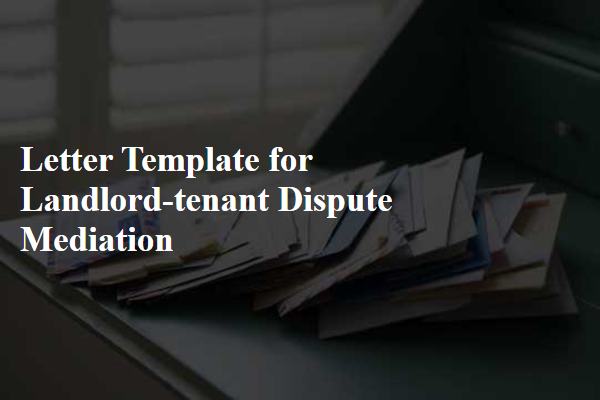
Tenant and Landlord Information
In the realm of landlord-tenant relationships, effective communication is crucial to resolving disputes amicably. Tenant information typically includes full name, current address, contact details, and lease agreement specifics, such as lease term dates and rent amount, while landlord information encompasses the property owner's name, address, contact information, and management company details, if applicable. Documenting issues like rental payment delays, maintenance requests, or lease violations can provide essential context for mediation. The mediation process, often facilitated by local housing authorities or professional mediators, aims to restore a harmonious living environment while addressing grievances impartially. This organized approach often involves setting a date for mediation, creating an agenda of discussion points, and ensuring both parties prepare relevant documentation to support their claims.
Description of Dispute
The dispute centers around the condition of the rental property located at 123 Maple Street, Springfield. The tenant has reported recurring issues, including inadequate heating during winter months, where temperatures have dropped below 0 degrees Celsius. Additionally, the tenant has identified leaks in both the kitchen and bathroom, contributing to water damage and mold growth, which can pose serious health risks. Communication attempts have been documented over three months, yet the landlord has not adequately addressed these urgent repair needs. This situation not only affects the tenant's quality of life but also raises questions regarding compliance with local housing regulations, specifically the Springfield Municipal Housing Code.
Request for Mediation
Disputes between landlords and tenants often arise due to issues such as unpaid rent, property maintenance concerns, or lease term disagreements. Mediation serves as a valuable tool to facilitate communication and find common ground. In this process, a neutral third party assists both parties in discussing their grievances and exploring potential solutions. For instance, mediation sessions typically take place in a neutral location, aiming for a resolution that respects rental laws, promotes fairness, and ensures the well-being of the living environment. Each participant articulates their perspective, fostering understanding and collaboration to achieve a binding agreement that relieves tensions and secures a harmonious tenant-landlord relationship.
Proposed Resolutions
In landlord-tenant disputes, effective mediation is essential for resolving conflicts amicably. Proposed resolutions can vary significantly depending on the nature of the issue, such as the failure to repair essential services like heating or plumbing in a rental unit. Possible resolutions might include a timeline for repairs, committing to specific repair dates (e.g., within 14 days of notification), or agreeing to rent abatement if necessary services are not restored on time. Rent adjustments may also be proposed, considering the extent of the inconvenience. Additionally, establishing clearer communication protocols, such as a dedicated mediation meeting twice a month, can prevent misunderstandings and foster a more positive landlord-tenant relationship. It's crucial to document all agreements formally in writing to ensure accountability from both parties, and having a neutral mediator present can help facilitate honest discussions and enhance the chances of reaching a mutually agreeable solution.
Legal and Contact Information
In landlord-tenant disputes involving mediation, accurate legal and contact information is crucial for effective communication and resolution. The mediation process often involves parties such as landlords and tenants, typically residing in rental properties located in urban areas like New York City or San Francisco. Legal representation may be necessary, involving lawyers who specialize in housing law or tenant rights, ensuring that both parties understand their rights under the relevant state laws or local ordinances. Contact information should include telephone numbers, email addresses, and mailing addresses of both the landlord and tenant to facilitate swift correspondence. Additionally, any third-party mediation organization, such as the Community Mediation Center, should have their contact details clearly listed, ensuring that all involved parties can reach them promptly for scheduling mediation sessions or exchanging pertinent documents related to rental agreements or eviction notices.
Letter Template For Landlord-Tenant Dispute Mediation Samples
Letter template of request for mediation in landlord-tenant disagreement
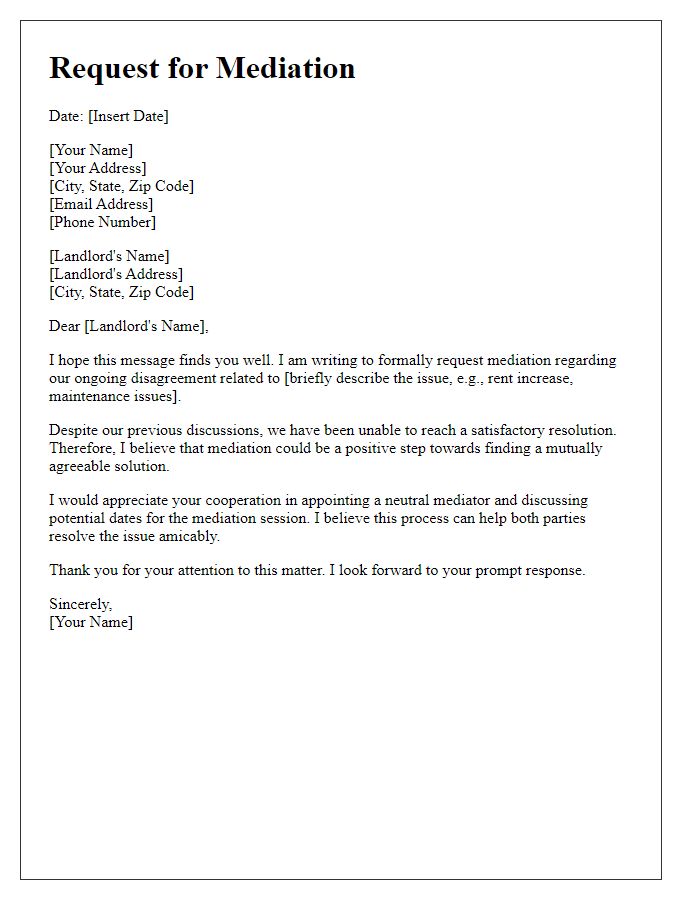
Letter template of formal mediation invitation for landlord-tenant conflict
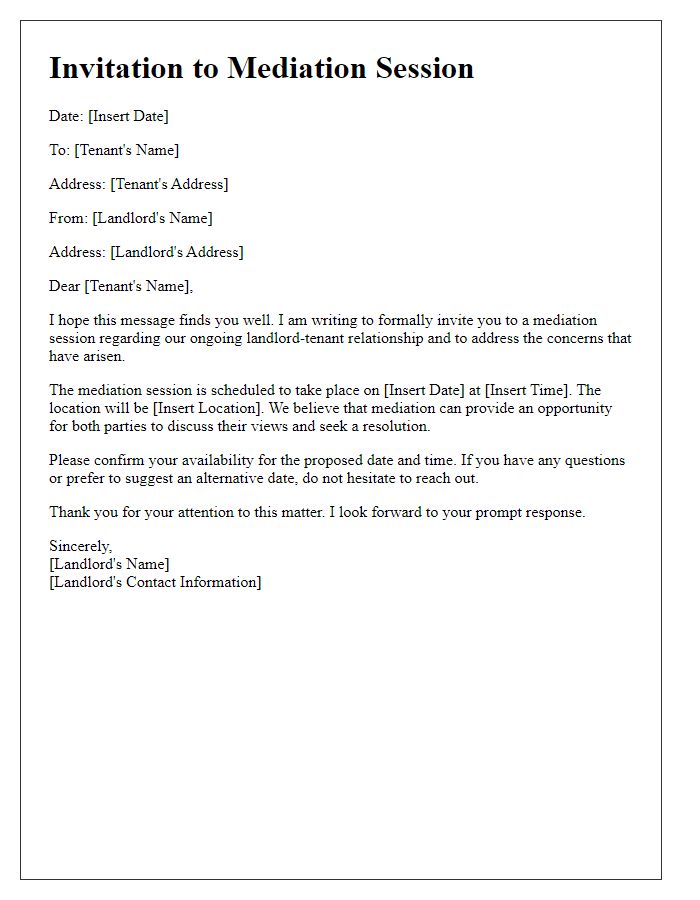

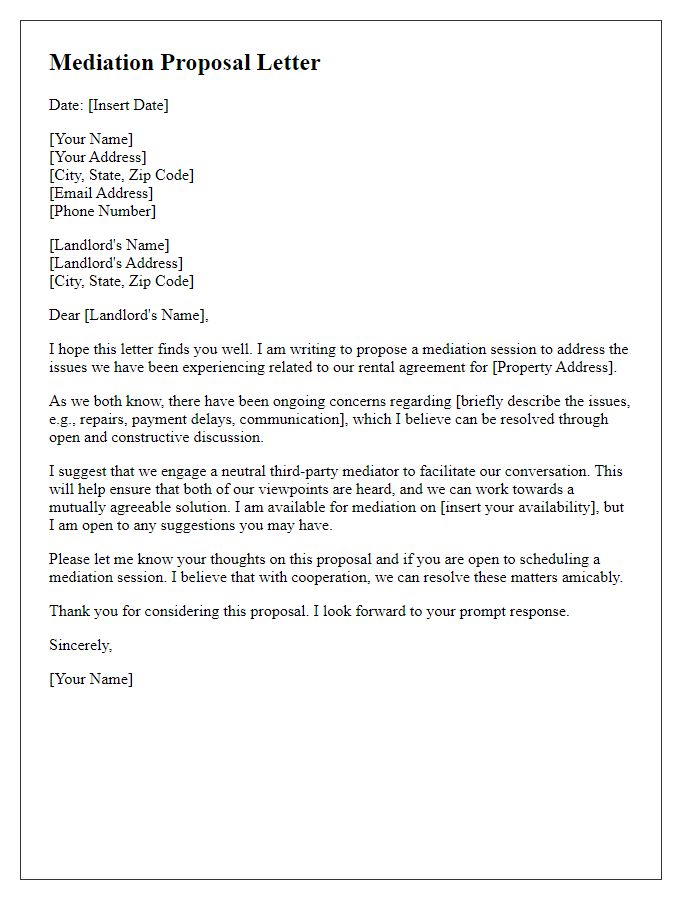
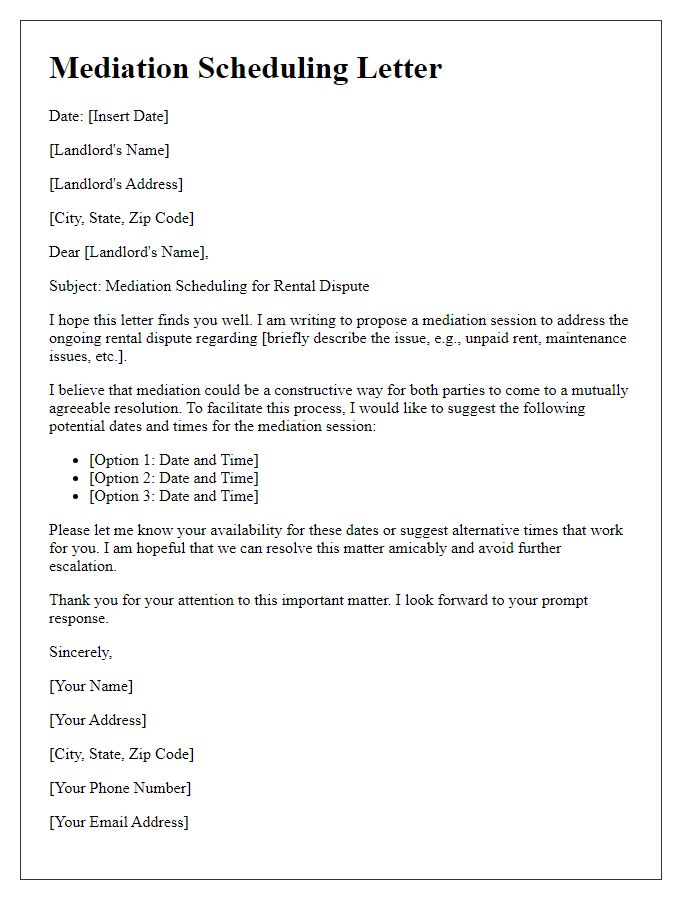
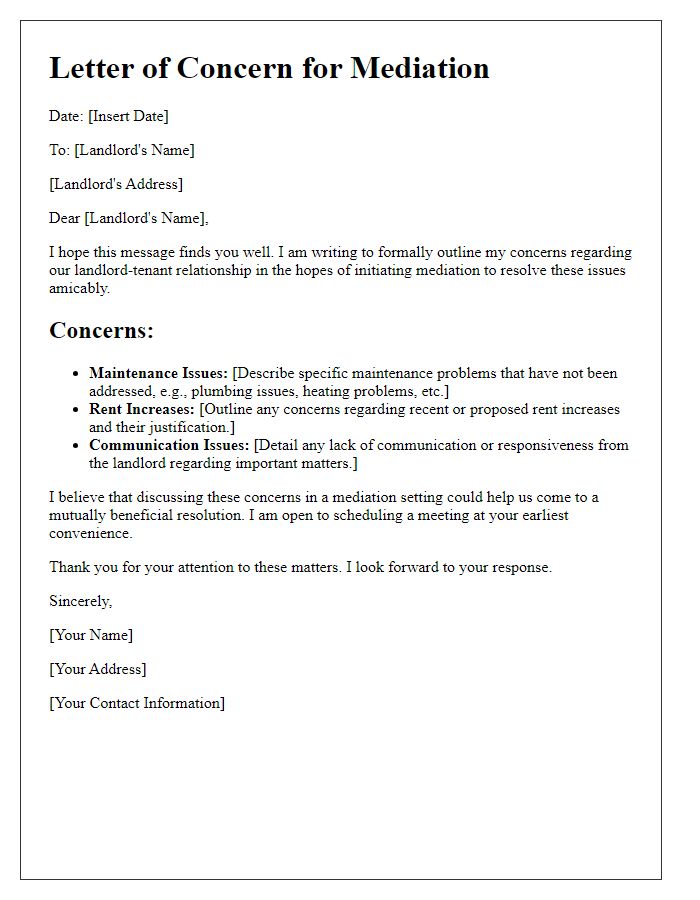
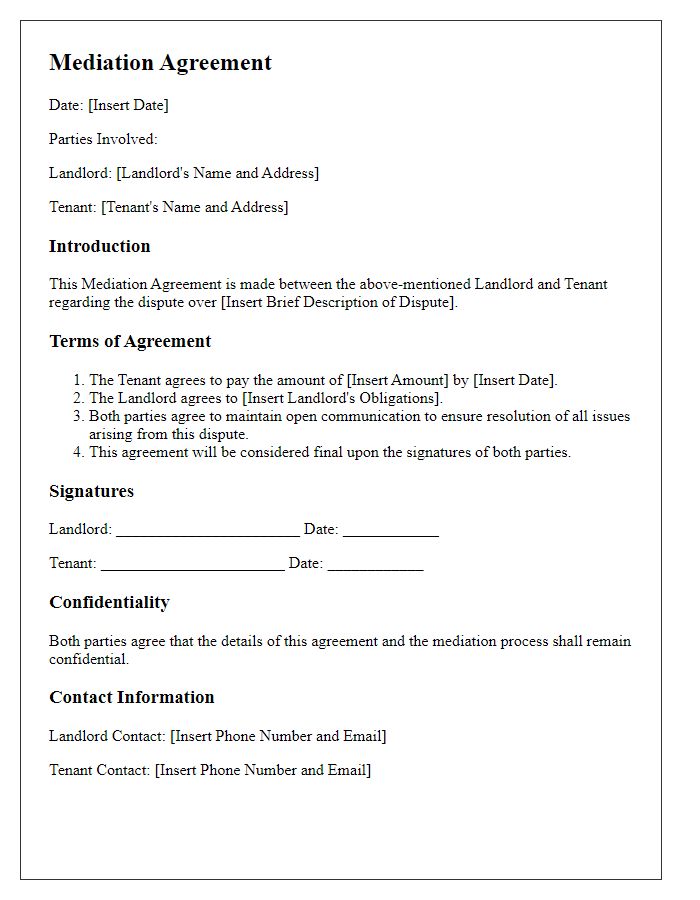
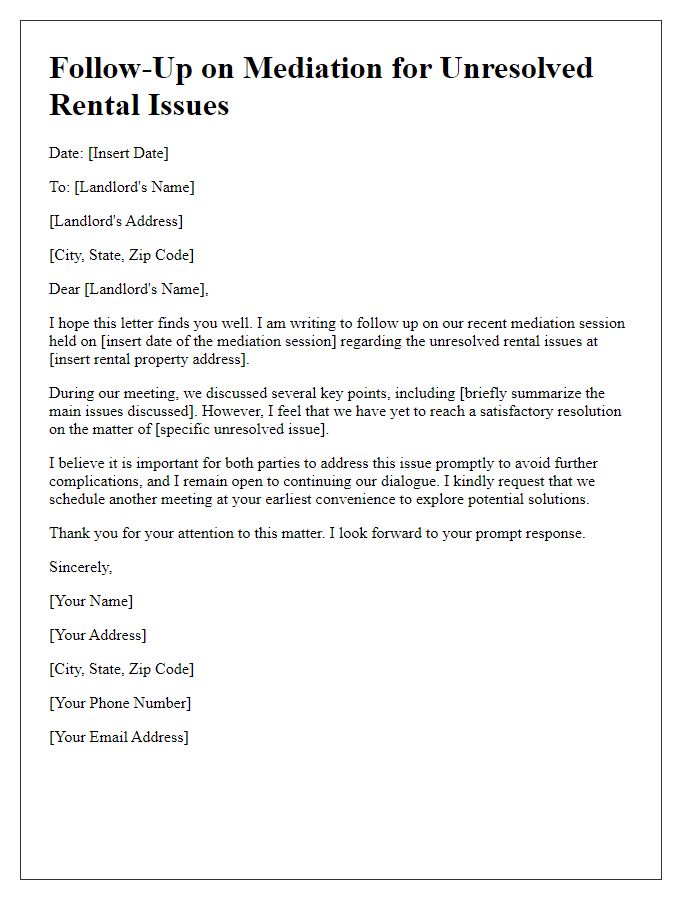
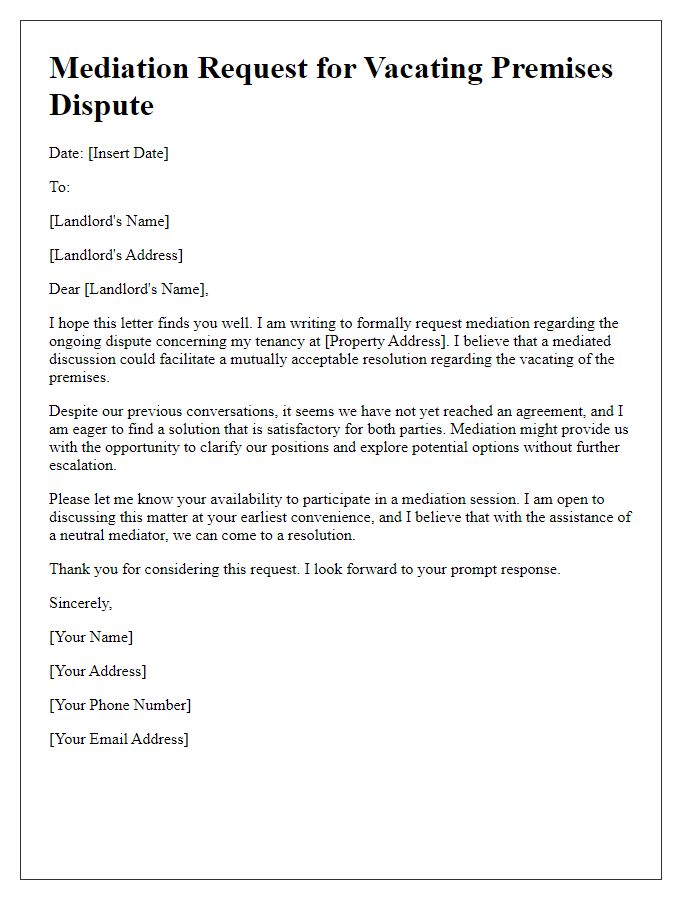
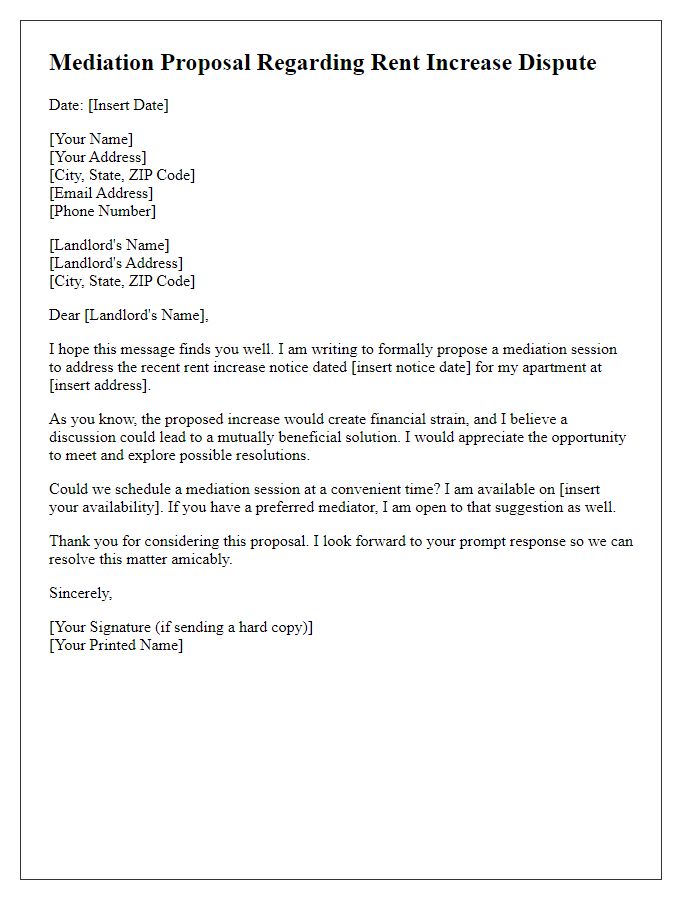
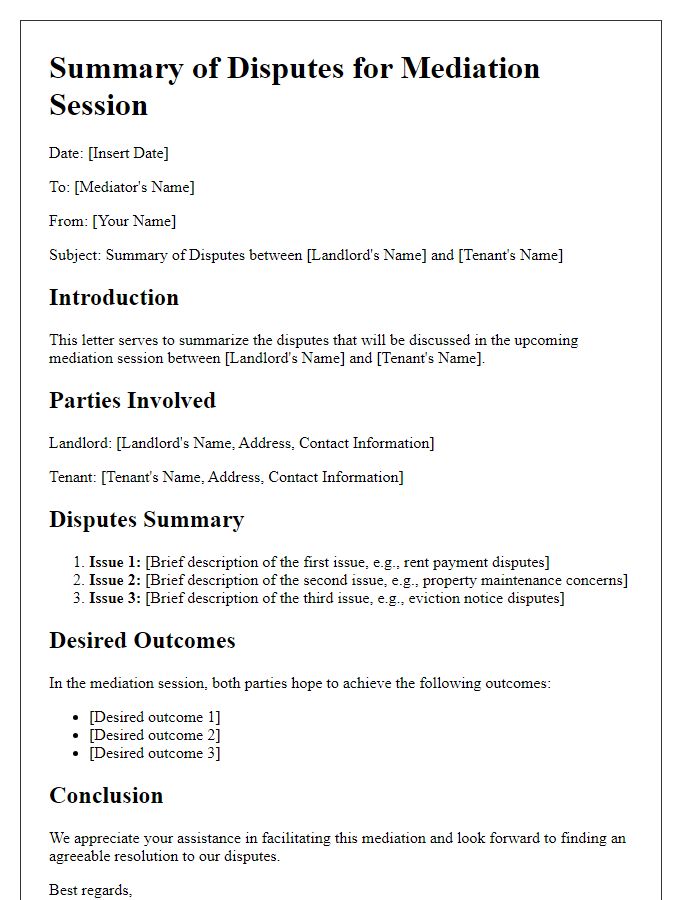

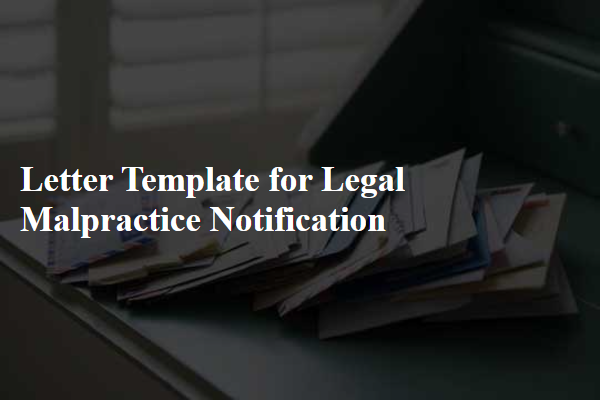
Comments